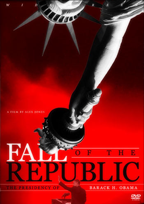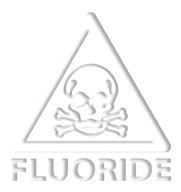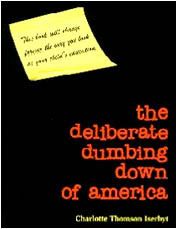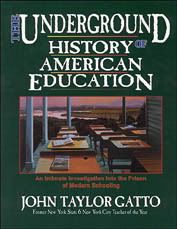"The scientific society with which the following chapters are to be concerned is, in the main, a thing of the future, although various of its characteristics are adumbrated in various States at the present day, The scientific society, as I conceive it, is one which employs the best scientific technique in production, in education, and in propaganda. But in addition to this, it has a characteristic which distinguishes it from the societies of the past, which have grown up by natural causes, without much conscious planning as regards their collective purpose and structure. No society can be regarded as fully scientific unless it has been created deliberately with a certain structure in order to fulfill certain purposes." - Bertrand Russell, 1931 (p203)
 This article will examine the use of scientific technique to increase the power of an elite scientific minority over the unscientific masses as discussed in Bertrand Russell's 1931 book The Scientific Outlook [1]. The basic theme of this book is to describe a society, partially in the future, partially currently in place (circa 1930s) dominated by scientific thought and technique. This includes a drastic redesign of education and human reproduction as well as the elimination of competition in production of goods. Other topics covered in this series include: forced labour, a society of scientific experts, changes in freedoms, education and Hollywood as propaganda, the use of behaviourism, psycho-analysis and physiological manipulation in schools and two examples of artificially created societies, Japan and Soviet Russia.
This article will examine the use of scientific technique to increase the power of an elite scientific minority over the unscientific masses as discussed in Bertrand Russell's 1931 book The Scientific Outlook [1]. The basic theme of this book is to describe a society, partially in the future, partially currently in place (circa 1930s) dominated by scientific thought and technique. This includes a drastic redesign of education and human reproduction as well as the elimination of competition in production of goods. Other topics covered in this series include: forced labour, a society of scientific experts, changes in freedoms, education and Hollywood as propaganda, the use of behaviourism, psycho-analysis and physiological manipulation in schools and two examples of artificially created societies, Japan and Soviet Russia.
Bertrand Arthur William Russell, 3rd Earl Russell (1872-1970) was a renowned British philosopher and mathematician who was an adamant internationalist and worked extensively on the education of young children. This included running an experimental school in the 1920's with his second wife Dora Black. He was the founder of the Pugwash movement which used the spectre of Cold War nuclear annihilation to push for world government. Among many other prizes, Russell was awarded the Nobel Prize in Literature in 1950 and UNESCO's (United Nations Educational, Scientific, and Cultural Organization) Kalinga prize for the popularization of science in 1957.
[Italicised text is original emphasis and bolded text is added by author.]
Science as Power-Thought
"But scientific thought is different from this. It is essentially power-thought - the sort of thought, that is to say, whose purpose, conscious or unconscious, is to give power to its possessor. Now power is a causal concept, and to obtain power over any given material, one need only understand the causal laws to which it is subject. This is an essentially abstract matter, and the more irrelevant details we can omit from our purview, the more powerful our thoughts will become. The same sort of thing can be illustrated in the economic sphere. The cultivator, who knows every corner of his farm, has a concrete knowledge of wheat, and makes very little money; the railway which carries his wheat views it in a slightly more abstract way, and makes rather more money; the Stock Exchange manipulator, who knows it only in its purely abstract aspect of something which may go up or down, is, in his way, as remote from concrete reality as the physicist, and he, of all those concerned in the economic sphere, makes the most money and has the most power. So it is with science, though the power which the man of science seeks is more remote and impersonal than that which is sought on the Stock Exchange.
The extreme abstractness of modern physics makes it difficult to understand, but gives to those who can understand it a grasp of the world as a whole, a sense of its structure and mechanism, which no less abstract apparatus could possibly supply. The power of using abstractions is the essence of intellect, and with every increase in abstraction the intellectual triumphs of science are enhanced." - 83
"It has had hitherto less success in direct applications to man, and it therefore still meets with opposition from traditional beliefs where man is concerned, but it cannot well be doubted that, if our civilization survives, man also will soon come to be viewed scientifically. This will have a great effect upon education and the criminal law, perhaps also on family life. Such developments, however, belong to the future." - 143
"Science increases our power to do both good and harm, and therefore enhances the need for restraining destructive impulses. If a scientific world is to survive, it is therefore necessary that men should become tamer than they have been. The splendid criminal must no longer be an ideal, and submissiveness must be more admired than it has been in the past. In all this there will be both gain and loss, and it is not within human power to strike a balance between the two." - 215
"In psychological terms, this means that the love of power has thrust aside all the other impulses that make the complete human life. Love, parenthood, pleasure, and beauty are of less account to the modern industrialist than to the princely magnates of past times. Manipulation and exploitation are the ruling passions of the typical scientific industrialist. The average man may not share this narrow concentration, but for that very reason he fails to acquire a hold on the sources of power, and leaves the practical government of the world to the fanatics of mechanism. The power of producing changes in the world which is possessed by the leaders of big business in the present age far exceeds the power ever possessed by individuals in the past. They may not be as free to cut off heads as were Nero or Jenghiz Khan, but they can settle who shall starve and who shall become rich, they can divert the course of rivers, and decree the fall of governments. All history shows that great power is intoxicating. Fortunately, the modern holders of power are not yet quite aware how much they could do if they chose, but when this knowledge dawns upon them a new era in human tyranny is to be expected." - 152
Scientific Technique
"The social effect of modern scientific technique is, in practically all directions, to demand an increase both in the size and intensity of organization. When I speak of the intensity of organization I mean the proportion of a man's activities that is governed by the fact of his belonging to some social unit. The primitive peasant may be almost entirely self-directed; he produces his own food, buys very little, and does not send his children to school. The modern man, even if he happens to be an agriculturist, produces only a small proportion of what he eats; if he grows wheat, for example, he probably sells the whole of his crop and buys his bread from the baker like any other man; even if he does not do this, he has to buy most of the rest of his feed. In his buying and selling he depends upon immense organizations which are usually international; his reading is provided by the great newspapers, his amusements by Hollywood, the education of his children by the State, his capital, in part at least, by a bank, his political opinions by his Party, his safety and many of his amenities by the Government to which he pays taxes. Thus in all his most important activities he has ceased to be a separate unit and has become dependent upon some social organization. As scientific technique advances, the most profitable size for most organizations increases. In a great many respects national boundaries have become a technical absurdity, and further advance demands that they should be ignored. Unfortunately nationalism is immensely strong, and the increasing power of propaganda which scientific technique has put into the hands of national States is being used to strengthen this anarchic force. Until this state of affairs is amended, scientific technique will not be able to achieve the results of which it is capable in the way of promoting human welfare." - 198
"The greatest triumphs of applied science so far have been in the realm of physics and chemistry. When people think of scientific technique they think primarily of machines. It seems probable that in the near future science will achieve equal triumphs in biological and physiological directions, and will ultimately acquire as much power to change men's minds as it already has power to deal with our inanimate environment." - 146
"No sharp line can be drawn between scientific technique and traditional arts and crafts. The essential characteristic of scientific technique is the utilization of natural forces in ways not evident to the totally uninstructed." - 137
"The power of psychological technique to mould the mentality of the individual is still in its infancy, and is not yet fully realized. There can, I think, be little doubt that it will increase enormously in the near future. Science has given us, in succession, power over inanimate nature, power over plants and animals, and finally power over human beings. Each power involves its own kinds of dangers, and perhaps the dangers involved in power over human beings are the greatest, but that is a matter that we will consider at a later stage." - 185
"While it is rather rash to make detailed prophecies, it is, I think, fairly clear that in future a human body, from the moment of conception, will not be regarded merely as something which must be left to grow in accordance with natural forces, with no human interference beyond what is required for the preservation of health. The tendency of scientific technique is to cause everything to be regarded as not just a brute datum, but raw material for the carrying out of some human purpose. The child, and even the embryo, will come to be viewed more and more in this way as the mentality connected with scientific technique becomes more dominant. In this, as in all other forms of scientific power, there are possibilities of good and possibilities of evil. Science alone will not decide which is to prevail." - 172
Conclusion
Part 2 of this series will examine the composition of the society of experts who will use scientific technique to dominate the masses. The application of scientific technique to education will be examined in part 3 with an emphasis on the distinction between the education for the "governing class" and "working class". Part 4 will look at the use of education, the Press, radio and Hollywood as propaganda. The use of behaviourism, psycho-analysis and physiological manipulation as applied to education will be examined in part 5. Part 6 will examine the application of scientific technique to the reproduction of human beings including the separate breeding techniques to be applied to the "governing class" compared with the "working class". Changes to Freedom and equality in the scientific society will be examined in part 7. Part 8 will examine changes to free trade and labour in the scientific society. Finally, Part 9 will describe two examples of artificially designed societies, including the creation of a new religion specifically for that new planned society.
[1] Bertrand Russell, The Scientific Outlook (1931). First Edition.
------------------------------------------------------------------
Related Articles
The Scientific Outlook Part 2: The Rule of the Scientific Expert
The Scientific Outlook Part 3: Scientific Technique and Education (July 14)
The Scientific Outlook Part 4: Propaganda: From the Class Room to Hollywood (July 21)
The Scientific Outlook Part 5: Behaviourism, Psycho-Analysis and Physiological Manipulation in Education (July 28)
The Scientific Outlook Part 6: Scientific Technique and Human Reproduction (August 4)
The Scientific Outlook Part 7: Freedom and Equality in a Scientific Society (August 11)
The Scientific Outlook Part 8: Free Trade and Labour in a Scientific Society (August 18)
The Scientific Outlook Part 9: Two Examples of Scientifically Created Artificial Societies: Japan and Soviet Russia (August 25)
Four Part Series on Bertrand Russell's The Impact of Science on Society











